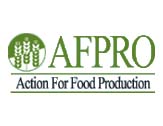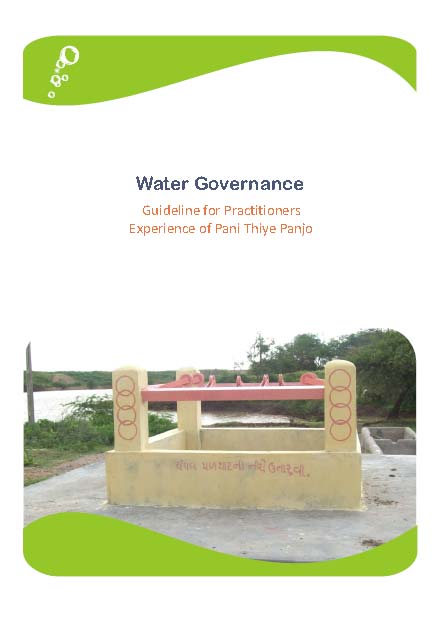Conservation - Reducing Water Usage
"No full stops for this rainman" - Interview with Shree Padre, farmer, water journalist and rainwater harvesting "evangelist" based in Kerala (2007)
Posted on 14 Jul, 2011 10:41 AMAuthor: Namitha Dipak, Lokhit Pashu-Palak Sansthan
Shree Padre, farmer, water journalist, and rainwater harvesting “evangelist” based in Kerala, India
Prospects and policy challenges in the Twelfth Plan: A special article by Montek Singh Ahluwalia in EPW
Posted on 14 Jul, 2011 08:55 AMThe year 2011-12 is the last year of the Eleventh Plan and this is therefore an appropriate time to review what has been achieved with a view to identify weaknesses in the strategy that need to be corrected, and also identify new challenges that may require new initiatives. The paper is presented in the hope of spurring a broader discussion on these issues.
The Department of Land Resources under the Ministry of Rural Development in consultations with the National Rainfed Area Authority issue revised guidelines on the inclusion of forest areas under the Integrated Wasteland Management Program - PIB release
Posted on 12 Jul, 2011 10:41 AMArticle courtesy: Press Information Bureau
As per the modifications in Para IX of the common guidelines for Watershed Development Projects, 2008, in the multi tier approach, it has been proposed that there would be a multi tier ridge to valley sequenced approach which should be adopted towards the implementation of the Watershed Development Projects.
National Water Policy - An alternative draft for consideration by Ramaswamy R Iyer - Economic and Political Weekly
Posted on 10 Jul, 2011 08:31 AMThe paper sets forth for consideration a broad national perspective on the nature of water and on its prudent, wise, sustainable, equitable and harmonious use. The Ministry of Water Resources is at present engaged in revising the National Water Policy 2002. Iyer is of the opinion that instead of trying to make changes in the 2002 Policy, the Ministry should put it aside and draft a new policy, starting from first principles.
Groundwater governance in India – A case study by World Bank
Posted on 09 Jul, 2011 11:43 AMIt examines the impediments to better governance of groundwater, and explores opportunities for using groundwater to help developing countries adapt to climate change. It attempts to understand the practical issues that arise in establishing robust national governance frameworks for groundwater and in implementing these frameworks at the aquifer level.
The case study focused on the national, state and local levels. At the national and state levels, it analyzed the policy, legal, and institutional arrangements to identify the demand and supply management and incentive structures that have been established for groundwater management. At the local level, it assessed the operations, successes, and constraints facing local institutions in the governance of a number of aquifers within peninsula India, on the coast and on the plain of the Ganges river valley.
Optimal water resource management in water stress condition : A Newsletter of AFPRO Volume 2, Issue 2 of July 2011
Posted on 07 Jul, 2011 11:29 AM Small and marginal farmers are most affected from water stress situations, and need simple, sustainable and effective measures for water conservation and management.
Small and marginal farmers are most affected from water stress situations, and need simple, sustainable and effective measures for water conservation and management.
Student Conference on Conservation Science – Bangalore 2011, September 14 – 16, 2011, Indian Institute of Science, Bangalore
Posted on 23 Jun, 2011 12:13 PMOrganizer: Student Conference on Conservation Science, IISc
Venue: JN Tata Auditorium, Indian Institute of Science, Bangalore
Description:
The Student Conference on Conservation Science (SCCS) – Bangalore brings together young researchers in conservation science to facilitate interaction, encourage exchange of research ideas and methods, and help build contacts and capacity. SCCS-Bangalore focuses on attracting students primarily from countries in South and South-east Asia.
Water governance guidelines for practitioners - Sahjeevan's experiences in decentralised drinking water management
Posted on 20 Jun, 2011 08:50 PM This report is based on the experience of women’s collectives promoted by Sahjeevan and of several member organizations of Abhiyan on local water governance, in particular on the demonstrated models of decentralized drinking water that they have taken up in several villages.
This report is based on the experience of women’s collectives promoted by Sahjeevan and of several member organizations of Abhiyan on local water governance, in particular on the demonstrated models of decentralized drinking water that they have taken up in several villages.
Water has been the central theme for development in Kutch. In the last two decades, a scaling up process of decentralized drinking water, popularly known as Pani Thiye Panjo, has been initiated in around hundred villages of Abdasa taluka in Kutch district of Gujarat focusing on development of local drinking water sources, their strengthening and building capacities of communities for maintenance and management of the systems to develop drinking water security at the village level.
The concept of Pani Thiye Panjo, has been well accepted as Abdasa model, which besides providing drinking water security, initiated policy dialogues at the local level on issues such as protection of groundwater, pricing mechanism of water (local vis-à-vis external sources), role of Panchayati Raj Institutions in water governance, role of local youth in developing their technical capacities and development of social capital in management of drinking water systems.
From dreams to reality - Compendium of best practices in rural sanitation in India - A document by the Water and Sanitation Programme and the Ministry of Rural Development
Posted on 19 Jun, 2011 05:50 PMThis compendium by the Water and Sanitation Programme and the Ministry of Rural Development, Government of India presents case studies about the achievements and experiences of different situations, institutional models, community mobilisation approaches, supply chain management techniques, capacity building methods, convergence of various programmes, school sanitation, innovative approaches etc from different states and regions in the country.
After a decade of launching the Total Sanitation Campaign, India has seen significant successes in terms of the sanitation coverage, creating open defecation communities/GPs and solid and liquid waste management. Thousands of success stories have emerged across the country while still there are many challenges in making the entire rural India Nirmal and sustaining the changes achieved.
Presentations from the two-day workshop on success stories under watershed programmes by DoLR at New Delhi (2011)
Posted on 18 Jun, 2011 06:50 PMThe workshop was structured in two sections. Research papers were presented from research institutes such as Central Research Institute for Dryland Agriculture (CRIDA), Central Soil & Water Conservation Research and Training Institute (CSWRTI), Deutsche Gesellschaft für Internationale Zusammenarbeit (GIZ) GmbH, International Crops Research Institute for the Semi-Arid Tropics (ICRISAT), National Research Centre for Agroforestry (NRCAF), National Institute for Rural Development (NIRD) and National Bank for Agriculture and Rural Development (NABARD). This was followed by presentation of success stories by various States.





